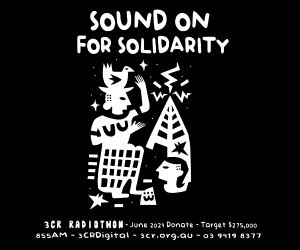Back in March this year, I sat down to watch the Formula 1 on Kayo and noticed they had a ‘Kidscast’ of the race. My son, aged 6, is just getting into car racing, so I thought I’d check it out to see how they were making the sport more kid-friendly. I clicked on it, and the customary advert appeared before the telecast began. The advert was for a betting company, and featured ninjas placing bets on sports.
I posted a complaint about it on social media, but received no response from Kayo. In fairness, I checked Kayo’s more recent ‘Kidcast’ races as I was writing this piece and they don’t seem to have any adverts at all up front anymore. However, this is an example of what can happen in a world of unregulated sports betting – gambling adverts that appeal to kids (Ninjas! Having fun! Betting!) appearing at the front of sports broadcasts aimed at kids.
Formula 1, of course, isn’t the only sport in bed with gambling companies. It was recently reported that the AFL would lose $120 million a year in revenue if gambling advertising was restricted. And gambling isn’t just in the advertising breaks – it’s also increasingly part of the discussion in broadcasts as well. Even if these broadcasts aren’t focused exclusively on children, there’s no way for kids to follow their favourite team without watching them.
Just how much gambling advertising is out there? The Australian Communications Media Authority (ACMA) found more than a million gambling adverts aired on free-to-air TV and metropolitan radio in the 12 months from May 2022 to April 2023. And that wouldn’t pick up the advertising in places like Kayo, or the advertising children are exposed to online.
The AFL apparently had the audacity to claim that losing gambling advertising funding would impact children playing grassroots football – noting that around 10 per cent of its revenue went to programs such as AusKick (or around $12 million out of the $120 million in spending it would lose). These numbers, however important, are a drop in the ocean to what the gambling industry currently takes out of the pocket of Australian families.
Those figures are astounding, in fact. Australian sports gambling companies take in more than $50 billion each year – that’s the equivalent of every Australian adult wagering $2,500. One might argue that adults can choose to spend their time and money as they wish, but the social issues related to gambling cannot be ignored.
Indeed, while sports betting might seem more socially acceptable than other forms of gambling, it may in fact be more likely to lead to problems. Research by the Australian Institute of Family Studies found that regular sports bettors are far more likely to experience signs of gambling problems (such as gambling more than they can afford to lose, or experiencing physical or mental health issues due to gambling), and around 23 per cent of regular sports bettors had moderate to severe gambling problems (compared to just 8 per cent of regular gamblers).
‘When gambling is so strongly featured alongside activities that are meant to be fun, they become associated with that fun in people’s minds. The problem’s not just in sports – this recent report explored issues around ‘lootboxes’ in online gaming as a gateway to gambling addition in young people.’
At the heart of the questions around gambling advertising is how it’s shaping the minds of generations to come. When gambling is so strongly featured alongside activities that are meant to be fun, they become associated with that fun in people’s minds. The problem’s not just in sports – this recent report explored issues around ‘lootboxes’ in online gaming as a gateway to gambling addition in young people. The underlying message is that the little boost of dopamine that comes from watching your team kick a goal, or overcoming that ‘boss’ level in an online game, can be replicated or enhanced by placing a bet or purchasing ‘loot’. Once young brains embark down that road, that feeling can become addictive – and ultimately, very expensive.
Managing children’s viewing experiences is, of course, an important part of parenting. But it’s difficult to do when gambling advertising is basically unavoidable if you want to follow sports. As proposed restrictions on gambling advertisements are debated in parliament, the question we face is whether our current gambling culture is something we want to hand on to the next generation, or something we want to make an effort to change.
Michael McVeigh is Head of Publishing and Digital Content at Jesuit Communications, publishers of Eureka Street.
SUPPORT RESPECTFUL CONVERSATIONS IN A TIME OF DIVISION
We need no reminding of the depth of the division that exists in our Australian community. It’s there every time we go online, turn on the TV, open the newspaper.
Our politics is focused on point-scoring, personalities, and name-calling across party lines. The media, for the most part, don’t help, driven by the 24-hour news cycle and the pursuit of advertising dollars into a frenzy of click-bait and shallow sensationalism.
What does it mean to be an Australian in times like these? What are the values that unite us?
Eureka Street offers an alternative. It’s less a magazine than a wide ranging conversation about the issues that matter in our country and our world; a conversation marked by respect for the dignity of all human beings.
To do this, we rely on your support as our community and we thank you for giving it so generously.
